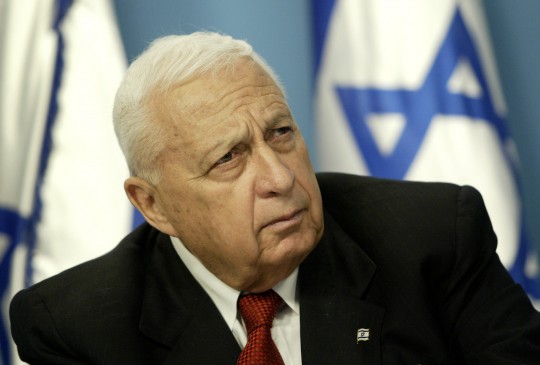JERUSALEM—Israel hailed Ariel Sharon as the most formidable warrior in Israel’s history and a political leader whose decisiveness is sorely missed in a time of drift following his death this weekend.
Sharon, 85, died in hospital Saturday after lying in a coma for eight years. He will be buried Monday on a hill adjoining his ranch in the northern Negev.
Even his political enemies, critical of him for being the prime mover in the establishment of settlements on the West Bank and in Gaza as housing minister, praised the political transformation he underwent after becoming prime minister.
"In power, he made decisions slowly and carefully and carried them out only after making sure he had public support and Washington’s backing," read a Ha’aretz editorial yesterday.
Most papers hailed his decision in 2005 to evacuate all Israeli settlements from the Gaza Strip—settlements that he had been instrumental in establishing a decade or two earlier—as the enduring legacy of his abbreviated term as prime minister.
The withdrawal, said military affairs reporter Amos Harel, was an important signal both to the Israeli public and the Palestinians that Israel is capable of making serious concessions. "Thus, the Israeli-Palestinian conflict does not have to be seen as absolutely insoluble," he wrote.
Prof. Shlomo Avineri, a political scientist, said that Sharon had not backed the settlement movement for ideological or Messianic reasons but for security reasons, and was thus able to uproot settlements for security considerations, which included maintaining good relations with Washington.
Sharon’s suppression of the second Palestinian intifada, or uprising, by ordering the army and security forces in 2002 to root out terrorism brought his popularity to a peak.
Many commentators focused on his military career, which began in 1948 when he was severely wounded as a young lieutenant battling the Jordan's Arab Legion. His division’s battle against a major Egyptian strongpoint in the 1967 Six Day War, which included a nighttime paratroop assault against the Egyptian artillery emplacements, is still studied in foreign military academies.
He is best remembered for leading a division across the Suez Canal in the 1973 Yom Kippur War, a move that proved the turning point in the war.
Maj. Gen. (res.) Giora Eiland recalled in Yediot Achronot leading his paratroop platoon near the canal when Gen. Sharon, the division commander, appeared. He asked Eiland, then a lieutenant, if he could talk to the men.
"When senior officers take time to talk to soldiers in such circumstances," wrote Eiland, "it’s usually to ask if their equipment is satisfactory or how their food is. But Sharon asked the platoon to sit on a knoll so they could see the surrounding area. For a quarter of an hour he explained the way the battle was developing and the need to keep moving north to get in the rear of the enemy—this to 30 ordinary soldiers."
A question raised by most Israeli commentators yesterday was whether Sharon, if he had not been felled by the stroke, would have removed many settlements on the West Bank the way he did in Gaza. Most said they didn’t know, a few said he probably would have.
However, all agreed that he was the one political leader who could do it without risking massive confrontations.
